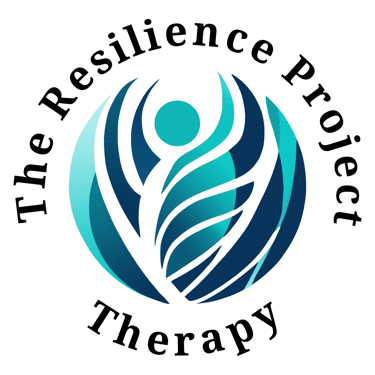Dear Friends, I'm Back - And We're Talking About Anxiety (Again)
Taming the "what-ifs": Tools to conquer future fear.
Christian Gray Hering, LCSW
2/25/20243 min read


My apologies for the extended hiatus! Life, as it tends to do, threw me a few curveballs, but I'm thrilled to be back and diving into a topic that's close to my heart (and many of yours): anxiety.
Today, I want to explore anxiety through a specific lens: the fear of future threat and/or danger. This definition, while seemingly simple, encapsulates a complex emotion that can manifest in countless ways, impacting our daily lives in both subtle and profound ways.
So, why the future? Why does our anticipation of what might be send our minds and bodies into overdrive?
The Evolutionary Roots of Anxiety:
From an evolutionary perspective, anxiety served a vital purpose. It kept our ancestors alert and prepared for potential threats, helping them avoid danger and survive. This "fight-or-flight" response, triggered by the amygdala (our brain's fear center), served us well in a world filled with literal predators.
Fast forward to the 21st century, and our threats have evolved. While saber-toothed tigers are no longer lurking around every corner, our minds haven't fully caught up. The fear response remains, but it's often activated by abstract worries – job security, upcoming presentations, relationship conflicts, the ever-present "what-ifs."
Unraveling the Fear:
The key to understanding anxiety lies in its relationship to perception. We don't just react to the future; we interpret it. This is where the cognitive aspect of anxiety comes in. Our thoughts, beliefs, and biases shape how we view potential threats, often inflating their likelihood and severity.
Tools for Taming the Future Fear:
So, how do we combat this fear of the unknown? Here are some tools to help you manage anxiety rooted in future threats:
Challenge Your Thoughts: When you find yourself catastrophizing, take a step back and question the accuracy of your thoughts. Are you making assumptions based on worst-case scenarios? Are you catastrophizing without evidence? Cognitive restructuring techniques can help you identify and replace negative thought patterns with more realistic and empowering ones.
Mindfulness: Mindfulness practices like meditation and deep breathing can anchor you in the present moment, reducing the grip of future worries. By focusing on your breath and bodily sensations, you can learn to observe your thoughts and anxieties without getting swept away by them.
Exposure Therapy: If your anxiety is focused on specific future events, gradual exposure can help you build resilience. Start by imagining the feared situation in a safe, controlled environment, then gradually progress to real-life exposure. This can help you desensitize yourself to the anxiety and develop coping mechanisms.
Focus on the Present: While planning for the future is important, dwelling on it excessively fuels anxiety. Instead, focus on what you can control – your actions in the present moment. This could involve setting achievable goals, practicing gratitude, or engaging in activities you enjoy.
Seek Professional Help: If your anxiety is severe or interferes with your daily life, don't hesitate to seek professional help. A therapist can provide personalized guidance and support, helping you develop effective coping mechanisms and manage your anxiety in a healthy way.
Remember: You are not alone in this. Anxiety affects millions of people worldwide, and there is no shame in seeking help. With the right tools and support, you can learn to manage your anxiety and live a fulfilling life.
Sources:
American Psychological Association: [https://www.apa.org/topics/anxiety]
National Institute of Mental Health: [https://www.nimh.nih.gov/health/topics/anxiety-disorders]
Anxiety and Depression Association of America: [https://adaa.org/]
The Mindfulness Clinic: [https://themindfulnessclinic.ca/issues/anxiety/]
I hope this post has been helpful. Please share your thoughts and experiences in the comments below. Let's continue the conversation about anxiety and empower each other on this journey towards calm and clarity.
Warmly,
Your Therapist
The Resilience Project Therapy
Mailing
P.O. Box 832182
Richardson, TX 75083
Contacts








